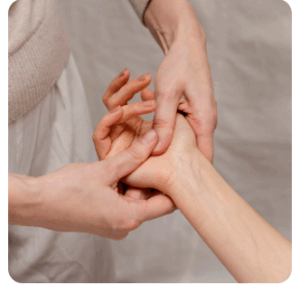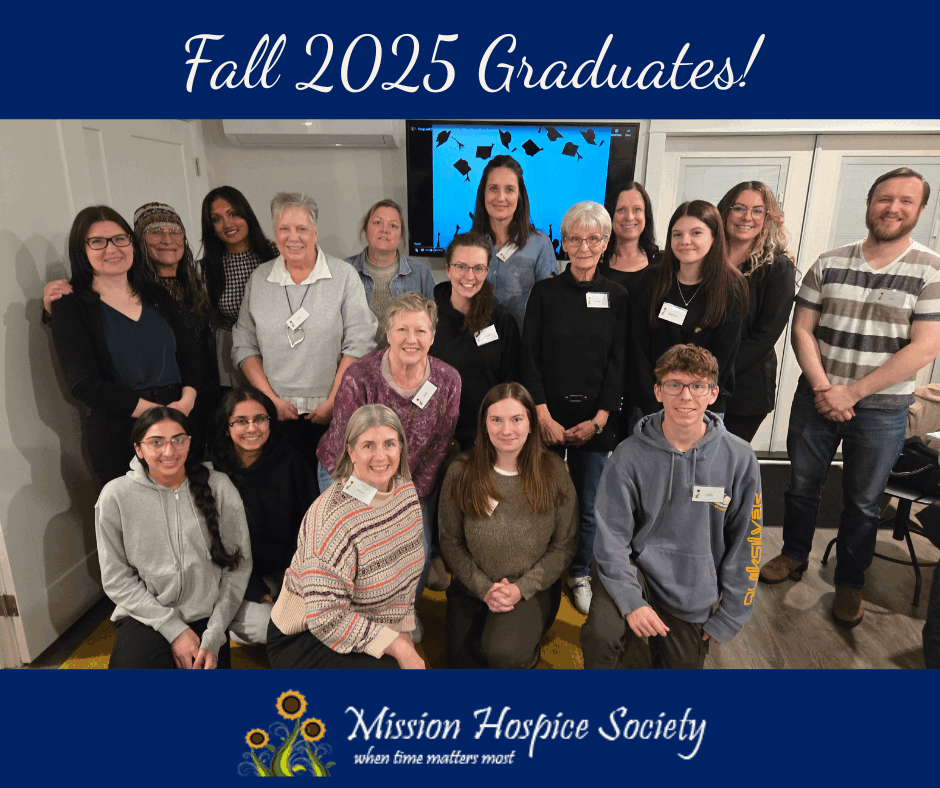Become a Mission Hospice Society Volunteer
Mission Hospice Society volunteers are compassionate community members who bring their life experience, unique skills, and heartfelt care to every visit. The greatest gift they offer is the gift of time, a calm, patient, and steady presence during life’s most emotional and vulnerable moments.
All volunteers complete a 35-hour training program, led by the Volunteer Coordinator and professional team members. This comprehensive course prepares volunteers for their roles in both direct and indirect support capacities.
Training topics include:
- The philosophy of hospice care
- The role of a hospice volunteer
- Communication skills for empathetic listening and effective support
- The palliative care approach, including the dying process and the needs of the dying
- Bereavement and client support
- Child and youth grief support
- Spiritual care
- Facilitator training for one-to-one and group support
Spring volunteer training sessions will be announced soon.
For more information or to express your interest, please contact:
voc@missionhospice.bc.ca | 604-826-2235

How Mission Hospice Society Volunteers Support Families and Individuals
Mission Hospice Society volunteers offer a wide range of compassionate support services, tailored to meet the emotional, practical, and spiritual needs of individuals and their loved ones. Their presence brings comfort, connection, and dignity during life’s most vulnerable moments.
Volunteer support may include:

- Emotional Support
Offering a calm, non-judgmental presence, listening, accepting, and helping through the experience of illness or loss. - Companionship
Providing friendly conversation, shared moments, and meaningful human connection. - Practical Assistance
Helping with light tasks or simply being present when support is needed most. - Life Reflection
Supporting individuals as they share stories, memories, or personal reflections—honoring their life journey. - Spiritual Support
Respectfully supporting each person’s beliefs, values, and search for meaning or peace. - Caregiver Relief
Giving family members a chance to rest while their loved one is cared for and supported. - Comfort Measures
Providing thoughtful touches—tea service, cozy blankets, or quiet companionship—to ease discomfort and anxiety. - Vigil Support
Offering a peaceful presence during the final hours of life—providing comfort for both the individual and their family. - Advocacy
Supporting individuals and families in understanding their choices and helping ensure their voices are heard. - Bereavement Support
Providing caring follow-up and emotional support for loved ones coping with grief and loss.

